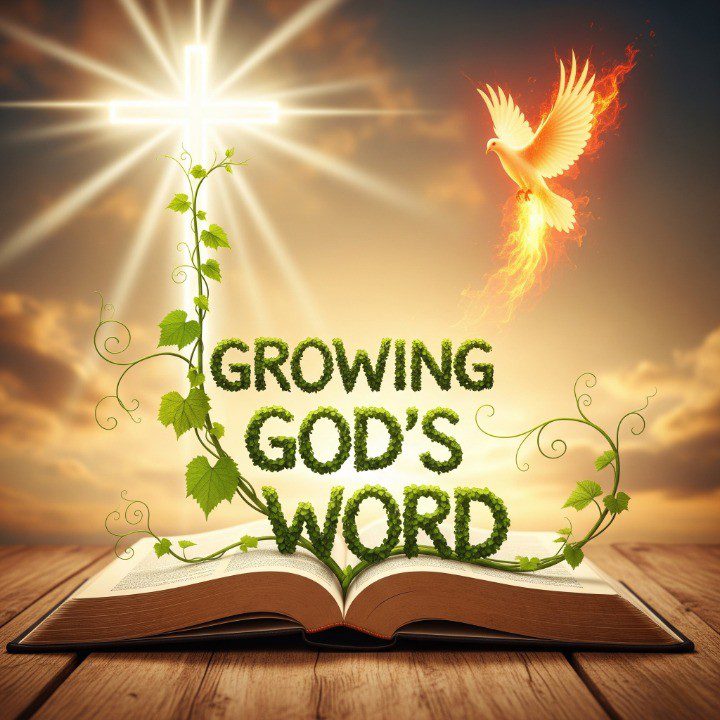Over the last few years, I’ve grown deeply concerned about the direction parts of Christianity are heading. It began with a simple question from Scripture: “Test everything; hold on to the good” (1 Thessalonians 5:21). What started as personal reflection evolved into a sobering examination of the theological currents reshaping our faith today.
The quiet drift is real. Many believers are mistaking compromise for faithfulness, unable to recognize the subtle erosion of biblical authority happening right under our noses. This isn’t about legalism—it’s about protecting the purity of the gospel.
The Danger of Quoting False Teachers
My journey deepened through a specific disagreement: Is it biblical to quote false teachers, even when they say something that sounds good?
My conviction is clear: No. Quoting compromised sources—even selectively—implicitly validates their broader, corrupt message. It’s like extracting one good ingredient from a poisoned dish. The “good” doesn’t neutralize the poison; it makes it more palatable.
Scripture demands more than selective approval: “Abstain from every form of evil” (1 Thessalonians 5:22). You cannot hold fast to truth while platforming deception.
Historical Context: Reformers vs. Modern False Teachers
Some appeal to the Reformers engaging Augustine and Aquinas. This comparison fails on crucial grounds:
- The Reformers corrected flawed theology within foundational tradition through sola scriptura
- Modern false teachers produce corrupt fruit: greed, arrogance, blatant departures from biblical truth
- Jesus taught discernment by fruit (Matthew 7:15-20). Wolves aren’t salvaged through selective quoting
True humility holds fast to sound doctrine, trusting Scripture’s sufficiency (2 Timothy 3:16-17).
Three Theological Movements Signaling Dangerous Compromise
1. New Apostolic Reformation (NAR) Claims ongoing revelation through modern apostles, violating Revelation 22:18-19. The fruit? False prophecies and dominion theology (2 Peter 2:1-3).
2. New Perspective on Paul (NPP) Reinterprets Paul, blurring sola fide with covenant membership, risking works-righteousness (Galatians 1:8-9).
3. Ecumenical Unity Movements Pushes “unity at all costs,” compromising essentials like gender roles (1 Timothy 2:12) and inerrancy.
Root Causes: Attacking the Gospel and Scripture’s Authority
Any person or system denying Jesus’ finished work on the cross—His once-for-all atonement by faith alone (Romans 3:24-25)—must be named and rejected. This includes prosperity gospels and sacramental systems adding works-righteousness. Paul warns: “Let him be accursed” (Galatians 1:8-9).
Any voice questioning God’s unchanging Word must be repudiated, even with noble causes. How can you claim assurance doubting the Scriptures that declare it? “The word of our God stands forever” (Isaiah 40:8).
Why We Must Name and Warn: Biblical Love Demands It
Scripture doesn’t merely tolerate doctrinal vigilance—it commands it. We name false teachers not from personal vendetta, but from biblical mandate:
1. Protection of the Flock (Acts 20:28-31) Paul warned Ephesian elders: “Fierce wolves will come in among you, not sparing the flock.” Shepherds must identify threats to protect vulnerable sheep. Silent tolerance enables predation—love demands warning.
2. Apostolic Precedent (2 Timothy 4:14-15) Paul named Alexander the coppersmith who harmed the church: “Beware of him.” This wasn’t personal attack but protection against ongoing damage.
3. Maintaining Doctrinal Purity (Titus 1:9-11) Leaders must “rebuke those who contradict” sound doctrine. Silence allows leaven to corrupt the whole lump (1 Corinthians 5:6).
4. Love for Truth and Souls (Jude 3) We “contend earnestly for the faith once delivered” by identifying what’s attacking it. The Galatians’ anathema protected the gospel, not attacked people.
The Danger of Silence Unwarned sheep become prey. Ezekiel 3:17-19 holds watchmen accountable: if you see danger and don’t warn, their blood is on your hands. Modern “graciousness” that refuses to name evil often stems from cultural fear, not biblical charity.
True charity speaks hard truths to save souls. Naming error is obedience to God, not meanness toward men.
The Biblical Call to Renewed Discernment
Test everything against Scripture (1 Thessalonians 5:21). Reject every form of evil (1 Thessalonians 5:22). Contend earnestly for the faith (Jude 3).
Balance requires both grace and truth (John 1:17). We name error with broken hearts for the deceived, not hardened hearts against the erring. The quiet drift threatens sincere believers mistaking tolerance for charity. Christian discernment matters now more than ever.
The church must wake up, test all things biblically, and lovingly warn before it’s too late. The blood of unwarned souls hangs in the balance.

